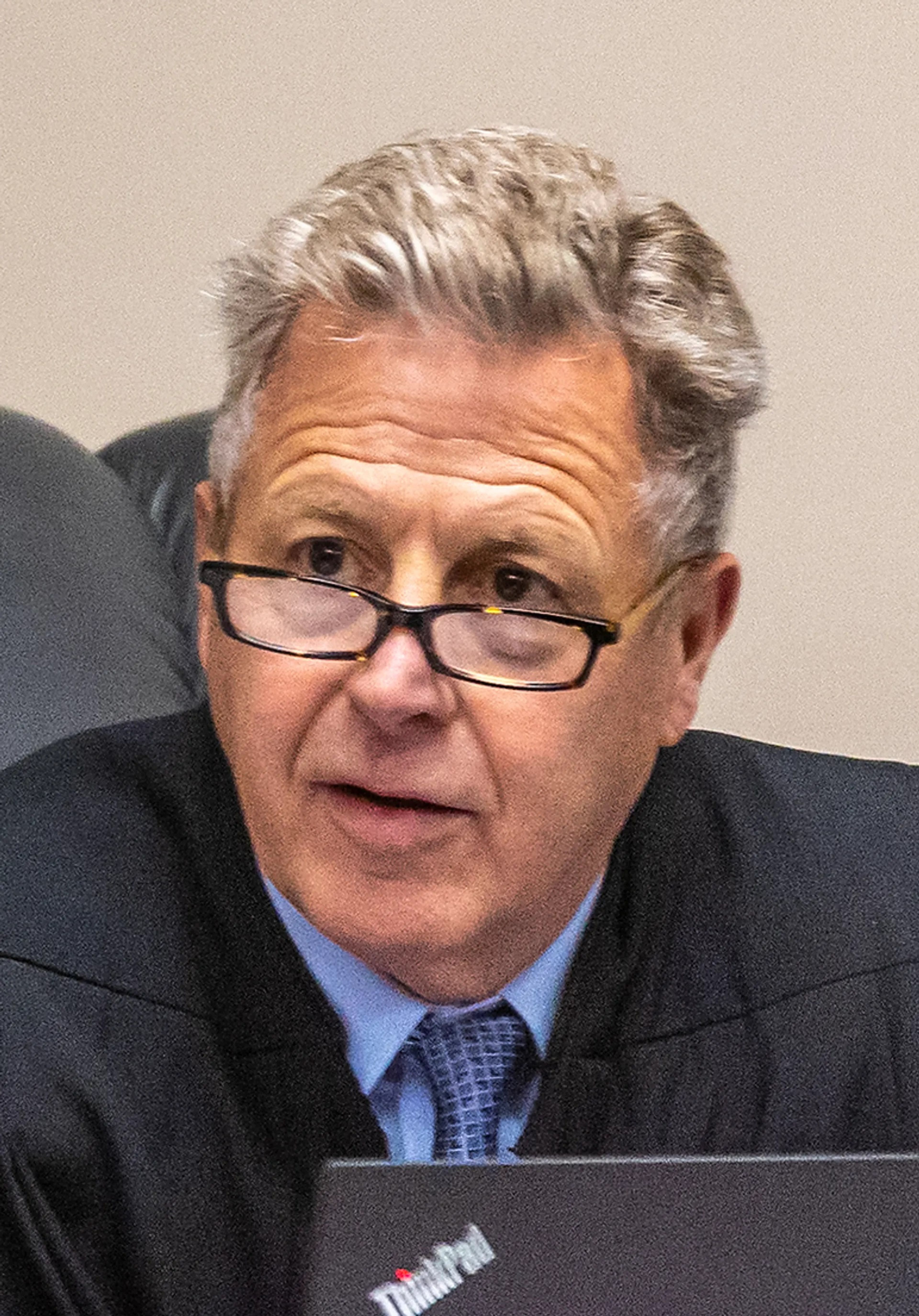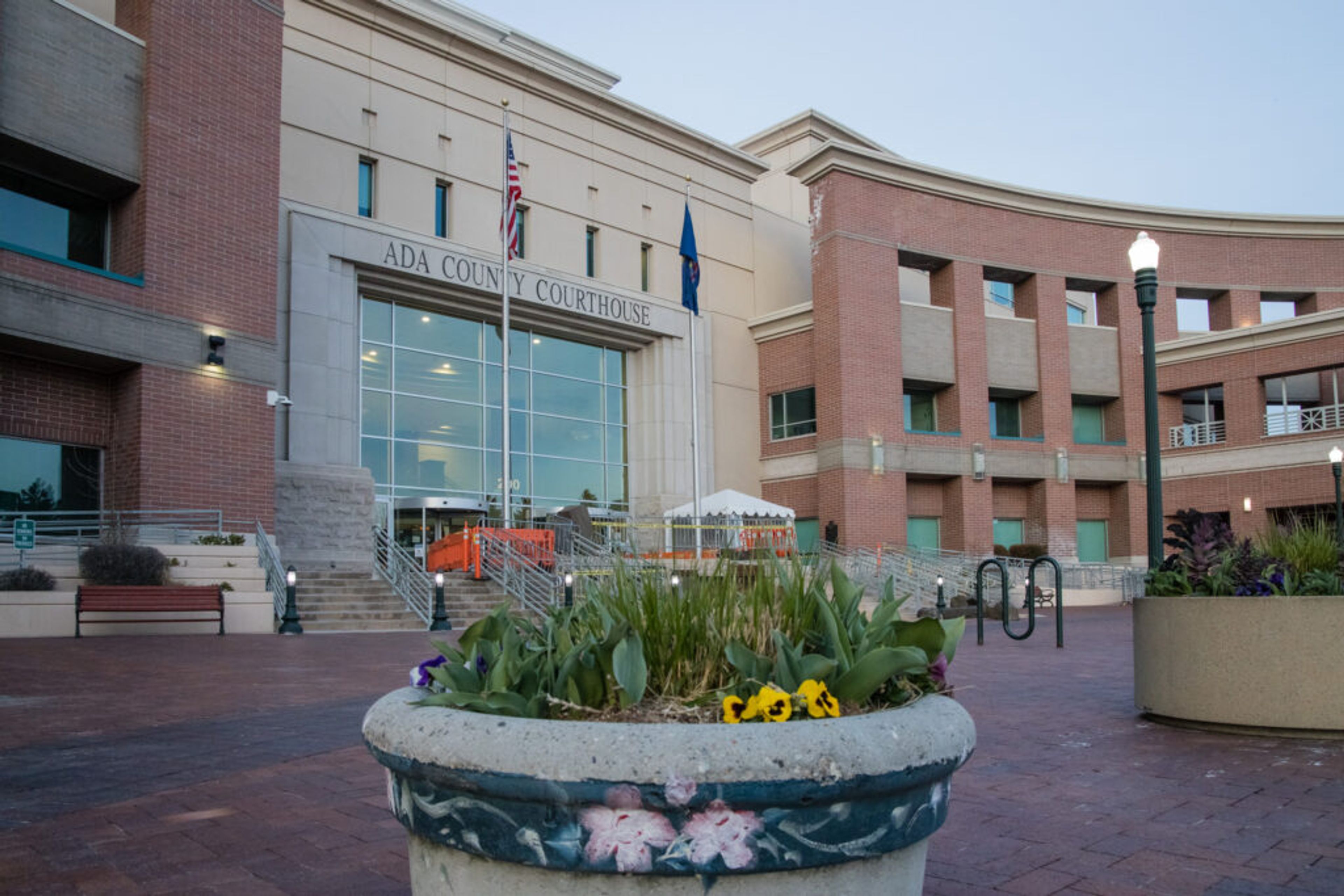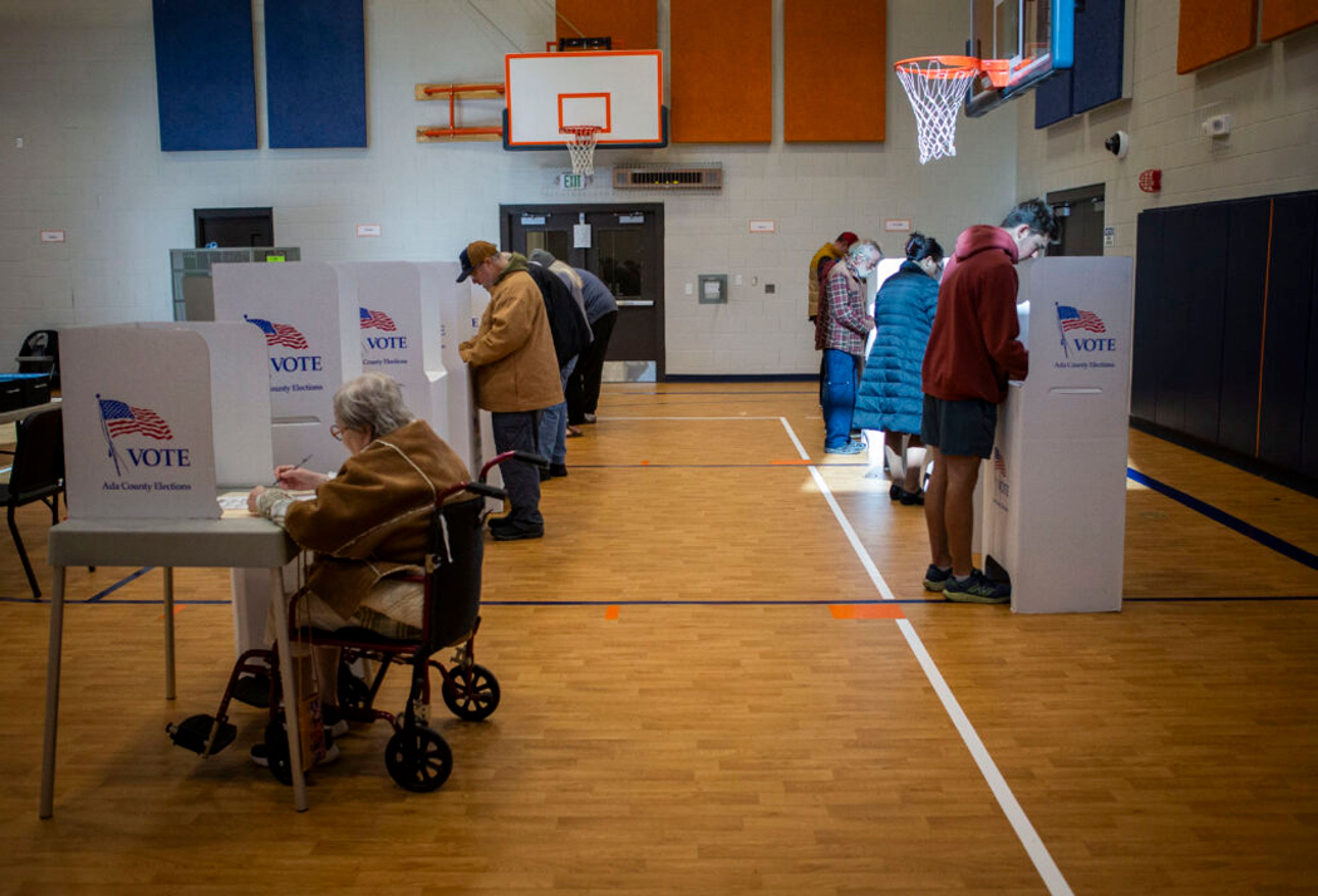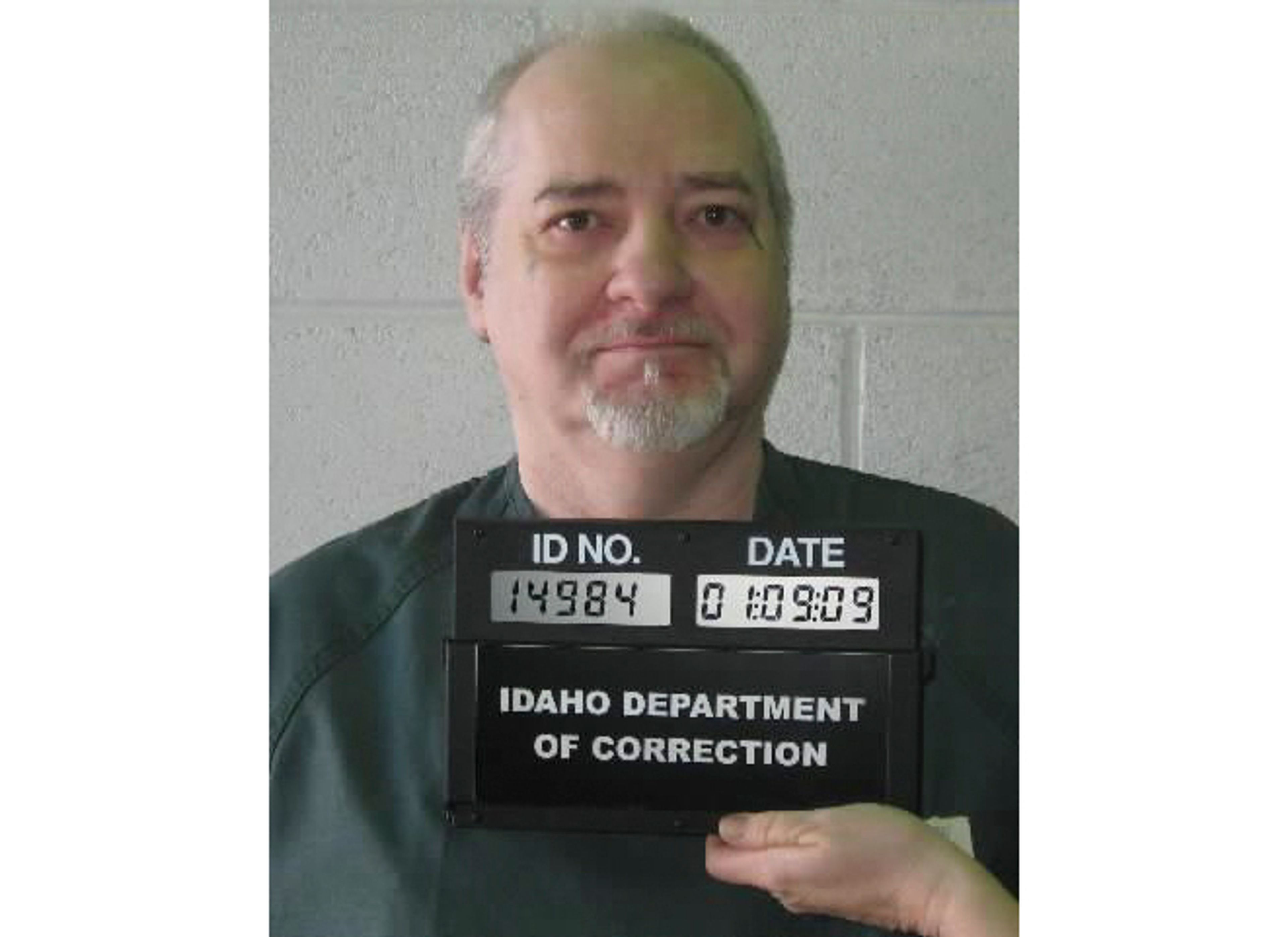Idaho’s judges face increasing threats; cybersecurity also an issue
Supreme Court chief justice raises concerns during State of the Judiciary address; cybersecurity is an issue
BOISE — Judges in Idaho are facing increasing threats and there still aren’t enough qualified, experienced applicants to open judicial positions, according to the state Supreme Court chief justice.
Idaho Supreme Court Chief Justice Richard Bevan also called for increased investment in technology and cybersecurity for the courts as well as further improvements to judge compensation Wednesday in his State of the Judiciary address. He noted many of the issues he underscored in last year’s address continue to be problems.
Bevan, speaking on the floor of the Senate, said the courts need more support to continue enforcing laws in Idaho.
For fiscal year 2025, the Judicial Branch is requesting $72.6 million from the state general fund, the state budget book shows. The governor recommended the branch receive $72.4 million.
During the last session, the Legislature appropriated $62.4 million to the branch for fiscal year 2024.
TECHNOLOGY AND CYBERSECURITY
Bevan said the state’s Court Technology Fund, which is paid for through fees, isn’t keeping up with current needs.
The fine and fee receipts that go into the fund have declined an average of 2.1% per year over the past five years, while the technology costs rose an average of 7% a year, Bevan said.
Through work with a consultant to address these needs, Bevan said the recommendations include a statewide court computer network and transitioning most services to the cloud-based network; the Judicial Branch has already begun work implementing the network.
This move will increase costs and staffing needs throughout the state, he said.
Bevan also called on the Legislature to “close the gap between our current technology funding and what the courts need for long-term success.”
To support the state courts’ technology costs, the Court Technology Fund will require an additional $12.5 million in ongoing funding, according to the Judicial Branch’s annual report.
For fiscal year 2025, the court is requesting more than $9 million of general funds. The request includes 11 additional full-time positions to support statewide network and technology.
“For these systems are not nice bonuses,” Bevan said. “They’re not bells and whistles. They are what technologically running a third branch of government requires — and what the public expects from a modern court system.”
The funding increase would address the “burgeoning demands of cybersecurity.” In December, the court’s systems blocked 209,000 attacks on court websites and 57,000 “critical and high-security threats” to its network firewalls, he said.
Bevan called the figures “evidence of coordinated efforts calculated by others to disrupt American governments.”
Idaho’s courts are seeing high volumes of cases, which can also cause a strain on technology.
Bevan said the state courts system handles more than 140,000 new court cases a year. In 2023, the state’s system for storing audio of all court hearings for the official court record received nearly 62,000 hours of audio. This is a 10% increase from the same time period four years ago, he said.
JUDGE SAFETY, RECRUITMENT AND RETENTION
Last year’s State of the Judiciary address focused heavily on safety concerns for judges.
Bevan told lawmakers Wednesday that the “situation has not improved.”
He cited an interview given by Michelle Mallard, who had been a magistrate judge in eastern Idaho for more than 11 years and resigned at the end of November, the Idaho Falls Post Register reported.
She said she’d received a growing amount of harassment and threats toward her and her family. Bevan told the legislators that Mallard said her husband slept with a gun by their bed following some incidents.
Bevan said that in addition to security threats, judges are also not fairly compensated.
He said that for recent openings in the first and sixth judicial districts, only three attorneys applied. The Judicial Council must provide a minimum of three recommendations for the governor for appointment to these selections.
Last year the Legislature approved a 3% increase for state Supreme Court justices, and moved up the pay for lower court judges.
“Idahoans deserve judges who are at the prime of their careers and at the top of their game,” Bevan said. ”But we don’t get there by making judicial service painful and under-compensated. At the very least, let’s pay our judges a fairer wage, something that reflects the market value of their education and expertise.”
Guido covers Idaho politics for the Lewiston Tribune, Moscow-Pullman Daily News and Idaho Press of Nampa. She may be contacted at lguido@idahopress.com and can be found on X @EyeOnBoiseGuido.








